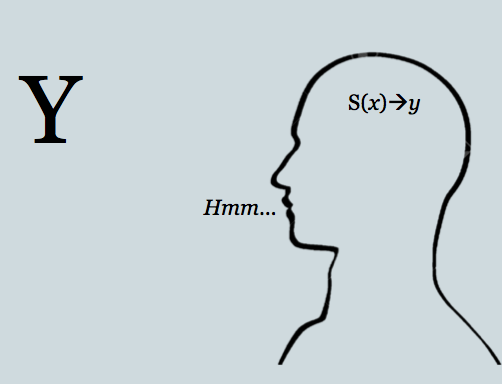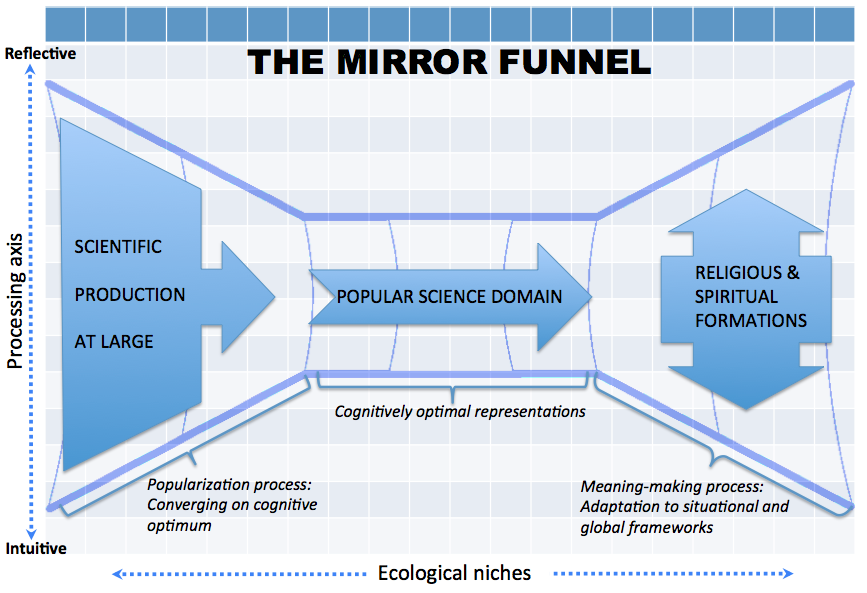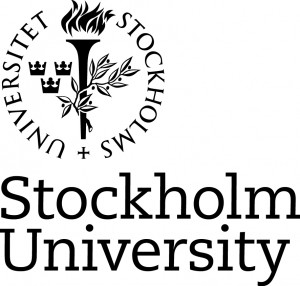
The Occult Minds project is relocating – again! As reported back in February, funding for the original postdoc project at UCSB ran out last year. The research that it seeded, however, will continue to bear fruit for quite some time. After a six-month stay at the Norwegian University of Science and Technology, I am pleased to announce that I have now taken up an assistant professorship in the history of religions at Stockholm University. It is the equivalent of a tenure track position, so I this time I may stick around for a while. My teaching responsibilities here will focus mostly on new religious movements, Western esotericism, the cognitive science of religion and social scientific approaches to religious change/innovation, while the Occult Minds project will remain one of my key research focuses.
During the past six months I have also been preparing a few Occult Minds-related papers for publication. Further updates on those, and on other aspects of the project, will be published here in due time.
]]>
A big part of my collaboration with Ann Taves at UCSB focused on developing the “building block approach” to complex cultural concepts. We have both published on this over the past few years (see Taves 2015, Asprem 2015, Taves and Asprem 2016). This summer, we have launched an educational website called Building Blocks of Human Experience, which introduces the approach and discusses some of its most important concepts. As the site continues to develop, we will add links to research tools, sample applications, and research projects that are aligned with the approach.
The site is intended as a tool for students as well as researchers interested in deveoping socio-cognitive explanations of the varieties of human experience as it is mediated by complex cultural concepts and social formations. We also keep a comments section where you can leave any feedback, criticisms, or comments you might have about the approach or the website. Some discussion is already starting to take shape there, so feel free to have a look and join in. This will assist us in the work to further update and calibrate the site, and develop the approach itself.
]]>
Not exactly the Californian riviera: My new office at NTNU, Trondheim, Norway.
My postdoctoral period at UCSB ended this past December. For the time being, I have relocated to the Norwegian University of Science and Technology (NTNU), where, among other research duties (I’m co-editing a big handbook on religion and conspiracy theories), I will be continuing work on the Occult Minds project at least until the summer. So, while the project is still unfolding, it is certainly time for an update.
Research Stages – Progress
The project was at the outset divided into a preparatory phase followed by three main stages. Using this division to gauge my progress over the past two years, the self-assessment looks something like this (complete with phony percent measures):
- Theoretical preparatory work: 100% complete. (Fully researched and article published.)
- Forms of Thought: 100% complete. (Fully researched and chapters/articles drafted.)
- Heterodox Knowledge: 66% complete. (This part still requires some more research. I estimate it’s 2/3rds done, in terms of the time needed for it)
- Claims to Gnosis: 80% complete. (Most research has been done, but some work remains for drafting the results and integrating it with the overarching framework).
Output
In terms of output, the project has so far resulted in three peer reviewed articles in top religious studies journals (published or accepted for publication), and eight papers and lectures delivered at various conferences and workshops. (Details are recorded on the results page). One of these articles, “Reverse-Engineering ‘Esotericism’”, is the polished, critiqued, and published outcome of the preparatory stage of the project. It is, I believe, the first systematic attempt to situate “esotericism” as a possible object of study for the cognitive science of religion. Another article (“Experience as Event”) is co-authored with Ann Taves, and uses the interdisciplinary framework of event cognition to look at how people process experiences, attribute various characteristics to them and label them in various ways (e.g.. “religious”, “mystical”, “psychotic”, “delusional”). It will soon appear as a target article in Religion, Brain, and Behavior, with nine commentaries by specialists and a response from Ann and myself.
In preparation
A number of other outcomes and related publications are currently in the pipeline. Here is a list of the most important projects that are scheduled for completion this spring:
- Building Blocks Website. Ann Taves and I have been working on a website that introduces the building block approach to connecting culture and cognition that we have been refining over the past two years. It will function as a resource for students and researchers alike, focused on introduction of key terms, explanations of how they relate to each other, discussions of theoretical contexts, and links to applications and research tools for specific methods.
- Aries special issue on esotericism and CSR. Together with Markus Altena Davidsen I am editing a special issue for the leading esotericism journal, Aries, focusing on the possibilities afforded by approaching esotericism from a CSR perspective. Markus and I are currently working on the first round of editorial reviews, and will proceed later this year with our editor’s introduction. Expected publication is still some time off, though, in winter 2017.
- Book manuscript, Occult Minds. The main outcome of the project is a book manuscript – tightly tied up with the research stages discussed above. I have a dialogue with Stanford University Press, and will submit the first test chapters this spring. At present, the entire manuscript is about 75% drafted (excluding necessary revisions).
- Articles on individual topics. At present, three articles intended for individual submission are partially drafted – one on the cultivation of mental imagery in esotericism, another on reassessing the “sociology of the occult”, and a third on a cognitive approach to “secrecy” in the context of esotericism. I hope to submit at least two of these before the summer.
All in all, there is still much to keep busy with – stay tuned for further updates.
]]> I am more used to being labelled a “scientistic reductionist” than an “anti-science relativist”. While neither is particularly accurate, I was certainly surprised to see Don Wiebe review my book, The Problem of Disenchantment, as a “full-scale attack on modern Western science” (p. 1). Ironically, the review (published online in the journal Religion) appears side by side with an article of mine [free postprint here] that argues for consilience between the humanities and the sciences, so readers are likely to walk away a bit puzzled.
I am more used to being labelled a “scientistic reductionist” than an “anti-science relativist”. While neither is particularly accurate, I was certainly surprised to see Don Wiebe review my book, The Problem of Disenchantment, as a “full-scale attack on modern Western science” (p. 1). Ironically, the review (published online in the journal Religion) appears side by side with an article of mine [free postprint here] that argues for consilience between the humanities and the sciences, so readers are likely to walk away a bit puzzled.
Since the charge of anti-science is a serious one, however, and since it comes from a well-respected scholar whose ardent support for a scientific and secular study of religion I have, in fact, admired since my undergraduate days, it seems necessary to take a moment to clarify some crucial issues that appear to get mixed up in the review.
Wiebe primarily takes issue with the way that my book incorporates perspectives from the history of science. Putting scientists on a level historical playing field with other spokespersons that make claims to “knowledge”, such as theologians, philosophers, and – horrible dictu – occultists, may seem to relativize the epistemic claims of scientists. Thus, Wiebe is led to conclude that my approach threatens to corrode the authority of the sciences, and with it the distinction between the scientific study of religion and the claims of religious spokespersons (p. 4-5).
Two simple clarifications will, I hope, suffice to demonstrate that these fears are unjustified. First, Wiebe’s review seems to lack a clear distinction between the historical task of historicizing epistemic claims and the philosophical task of doing normative epistemology (such as demarcating science from non- or pseudo-science). I am doing the former, not the latter. I analyze (some) scientists as historical actors, which inevitably means viewing their normative claims with regard to the proper conduct of science as contingent historical expressions. However, a historical description and comparison of diverging claims is not an “attack” on the “special epistemic status” of the sciences. Descriptions of what actually happened and judgments on how it ought to have happened are simply separate issues.
Even though my primary agenda was historical, it might be worth noting that the book does, in fact, also include a thorough discussion of epistemological issues (e.g., in chapter two – an earlier version of which is freely available here). It even features a critique of the sort of “radical constructionism” with which Wiebe appears to have me associated. Unfortunately, the review did not engage with this dimension of the book.
The second clarification concerns my motivation for including the history of science in the first place. There is a very simple reason for it: As I demonstrated in chapters two and four of the book [see here and here for free dissertation versions of these chapters], non-experts in the history of science who write about the historical relationship between science and religion frequently end up reproducing “emic historiographies of science” – “history myths” that serve various insider agendas, but are simply not supported by rigorous historical research (I wrote about this on Heterodoxology many years ago). Being able to clearly “differentiate between strategic mythmaking and actual scientific practice” (Problem of Disenchantment, 100-101) was my primary motivation for engaging with the history of science literature, as expressed on numerous occasions throughout the book (e.g., pp. 61, 89, 100-106, 110, 120, 125-127, 139, 141-143, 147, 278, etc.).
As a general principle, I hold that researchers seeking to make valid scholarly claims in an interdisciplinary space have an obligation to read up on relevant specialist literatures – whether history of science, economics, psychology, or whatever field one’s research enters into (see e.g. pp. 84-85, 556-556). In the book, I called this stance the “endoxic principle” (pp. 84-86). Engaging with history of science in a work of religious studies is simply a special case of its application.
Pace Wiebe’s complaints, I believe this to be a principled and staunch defense of the epistemic authority of academic expert systems rather than an attack on it.
——————-
Readers interested in finding out more about my use of history of science in the study of esotericism may read the article “Dis/Unity of Science: Models for the Study of Modern Esotericism and Science” (Numen, vol. 62 (2015), vol. 5-6: 538-567). [from publisher, paywall]
Those curious about my view on consilience between the harder sciences (especially cognitive science and psychology) and the humanities (esp. religious studies) should check out “Reverse-Engineering ‘Esotericism’: How to Prepare a Complex Cultural Concept for the Cognitive Science of Religion” (Religion, online 22 Sept 2015, doi: 10.1080/0048721X.2015.1072589) [from publisher, paywall].
And, of course: it doesn’t hurt to read the book for yourself. The dissertation on which it is based is now available electronically from the University of Amsterdam’s repository. Please note that crucial parts, especially chapters 1, 2, and the conclusion, have been thoroughly rewritten in the book version.
]]>
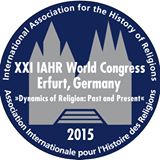 This coming week, religion scholars from all over the world descend upon Erfurt, Germany, for the quinquennial conference of the International Association for the History of Religion (IAHR). I am writing this post from the comfort of a Deutsche Bahn train seat, on the last stage of a long journey from Santa Barbara. It will be a busy week: I am personally involved with three panel sessions, giving a paper in two of them and assuming the duty of co-organizer of all three. On Monday morning we will have a fun and interesting session on conspiracy theories and contemporary religion, co-chaired by David Robertson and myself; Tuesday afternoon, we have a very promising session called “After Deconstruction”, co-organized by Ann Taves and myself; and on Thursday, there is a panel on “secrecy” conceived of by Christinane Königstedt, with me as co-organizer and a speaker as well.
This coming week, religion scholars from all over the world descend upon Erfurt, Germany, for the quinquennial conference of the International Association for the History of Religion (IAHR). I am writing this post from the comfort of a Deutsche Bahn train seat, on the last stage of a long journey from Santa Barbara. It will be a busy week: I am personally involved with three panel sessions, giving a paper in two of them and assuming the duty of co-organizer of all three. On Monday morning we will have a fun and interesting session on conspiracy theories and contemporary religion, co-chaired by David Robertson and myself; Tuesday afternoon, we have a very promising session called “After Deconstruction”, co-organized by Ann Taves and myself; and on Thursday, there is a panel on “secrecy” conceived of by Christinane Königstedt, with me as co-organizer and a speaker as well.
Unfortunately, since there is an enormous amount of parallel sessions at this conference I am missing out on a lot. Including, as it turns out, some extremely interesting cognitive science of religion panels. If I were not discussing conspiracy theories on Monday morning (a perfectly normal way to start a week), I would certainly have gone to this exciting panel on recent innovations in the experimental study of religion. Some of the leading new experimentalists from the MINDLab in Aarhus (Jesper Sørensen, Uffe Schjødt, Kristoffer L. Nielbo) will be discussing an emerging neurocognitive paradigm that I find very promising (Ann Taves and I discussed it in our forthcoming article in RBB).
At least my other two sessions are directly connected to the Occult Minds project. In the panel “After Deconstruction: Reassembling the Study of ‘Religion/s’ (and Other Dubious Categories)”, we tackle a very central question that is at once theoretical, practical, and political, and which is a major backdrop for the “building block approach” (BBA) that Taves and I have been developing in recent publications. We have convened four papers on four problematic categories that have all faced the issue: “Gnosticism” (Dylan Burns), “magic” (Bernd-Christian Otto), “esotericism” (Asprem), and “religion” (Taves). Burns’ opening paper on Gnosticism will provide a context for the rest of us: this category was dismantled by specialists already in the 1990s. Now, two decades later, we are in a position to say something about the effects of this move – including unintended consequences. From there we move to Otto, who together with Michael Stausberg has made an argument (here) about the concept of “magic” that bears some similarities to what Ann and I are arguing in terms of building blocks. In my own paper I will reflect a bit closer on what consequences I see my recommendations (in the forthcoming article, “Reverse-Engineering ‘Esotericism’”) for a building block approach to “esotericism” having for the status of the category itself. Ann will close the panel with practical reflections on the consequence of dismantling “religion” for teaching “it” in departments of “religion” (basically: no need to worry!).
The secrecy panel should also be interesting. Not only is secrecy a sexy topic, but we will also have Henrik Bogdan talk about the threats of punishment in the oaths of Freemasonry. My own paper is based on research I am doing (or more precisely, theory that I am trying to develop) on the epidemiology of representations applied to various aspects of “esotericism”. The updated title of my talk is “When Secrets Travel: Reflections on an Epidemiology of Secretive Representations.”
Secrecy is a paradoxical social phenomenon, as sociologists have known at least since Georg Simmel. It is, on the one hand, about restricting and controlling (strategically relevant) information; on the other, “secrets” are highly desirable commodities that can travel fast in the shape of e.g. rumours and moral panics. In the paper, I try to elaborate some cognitive points on top of the excellent sociological work that already exists.
In fact, most of what is worth saying about secrecy was already said by Simmel in his remarkable 1906 paper on “The Sociology of Secrecy and of Secret Societies”. On re-reading it recently, I was struck by how much of his discussion is grounded in a micro-sociological account that draws directly on the cognitive and psychological situation of interacting agents (e.g., how much do people know about each other? What is the relation between this information, decision-making and action?). I try to reclaim some of this perspective, focusing especially on how secretive representations rely on metarepresentational abilities – e.g., the ability to represent x (whatever it means) as a secret, or attribute some secret to person A, or infer some hidden content x behind representation y. I will go on to argue that when we see this structure in light of Dan Sperber’s epidemiology of representations, we should not be surprised to find, historically, that claims of secrecy are associated not only with social processes of individualization, social differentiation, stratification, the creation of cultural capital etc., as sociologists have demonstrated, but also with cultural innovation. The arcanum, being deliciously unknowable in principle, is always open for new interpretations.
And with that, my train is arriving in Erfurt.
]]>
P20-218
European Society for the Study of Western Esotericism
Theme: Western Esotericism and Cognition
Friday – 3:30 PM-6:30 PM
The purpose of this ESSWE meeting is to explore how modern developments in cognitive studies could be made relevant to the study of Western Esotericism, for instance in view of the role of alterations of consciousness as facilitators of “gnosis,” practices of imaginations/visualization, meditation, and so on.
Leonard George, Capilano University
A Biopsychological Perspective on Theurgical Ecstasy
John MacMurphy, University of Amsterdam
Oneiropoiesis in Ecstatic Kabbalah
Simon Magus, University of Exeter
Austin Osman Spare and the Conquest of the Imaginal
Massimo Introvigne, Center for Studies on New Religions, Turin, Italy
Visualization, Scientology, and the Arts
Egil Asprem, University of California, Santa Barbara
A Theoretical Framework for the Generation of Experiential Knowledge
Adam Klin-Oron, Van Leer Institute
Channeled Consciousness
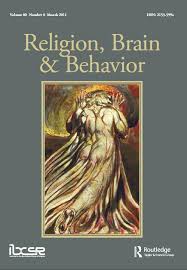 I am happy to announce that two publications related to the Occult Minds project have been accepted for publication in top religious studies journals over the past week.
I am happy to announce that two publications related to the Occult Minds project have been accepted for publication in top religious studies journals over the past week.
The first of these, “Experience as Event,” is a co-authored article with Ann Taves that is slated to appear as a target article in Religion, Brain, and Behavior. The article argues that “event cognition” offers a significant framework for analyzing experiences (including those that people deem “religious”, “spiritual”, “mystical”, or “occult”), allowing us to reconsider classic problems in this field and to integrate methods from the humanities and the cognitive sciences.
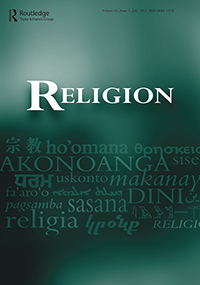 The second article is entitled “Reverse-Engineering ‘Esotericism’”, and has just been accepted for publication in Religion. An elaboration on the approach of the Occult Minds project, this article demonstrates specific methods for “reverse-engineering” a complex cultural concept (CCC), and suggests ways for how the various phenomena grouped under the CCC “esotericism” might be fruitfully studied and integrated into the cognitive science of religion. I suggest doing this by looking at “esotericism” in terms of more generic processes of creating and setting aside certain kinds of knowledge as “special”, and looking at the ways such “special knowledge” is distributed and deployed.
The second article is entitled “Reverse-Engineering ‘Esotericism’”, and has just been accepted for publication in Religion. An elaboration on the approach of the Occult Minds project, this article demonstrates specific methods for “reverse-engineering” a complex cultural concept (CCC), and suggests ways for how the various phenomena grouped under the CCC “esotericism” might be fruitfully studied and integrated into the cognitive science of religion. I suggest doing this by looking at “esotericism” in terms of more generic processes of creating and setting aside certain kinds of knowledge as “special”, and looking at the ways such “special knowledge” is distributed and deployed.
Together, these two articles elaborate on the building block that Taves has suggested in earlier work, and demonstrate the potential of a reverse engineering process for CCCs. In particular, both these papers tackle the interface between social constructionism and cognitive science in the study of religion (and esotericism), attempting to strike out a balanced and constructive path for future work.
Here are the two abstracts:
Experience as Event: Event Cognition and the Study of (Religious) Experiences
By Ann Taves and Egil Asprem
Accepted for publication in Religion, Brain, and Behavior
Abstract: We argue that EVENT is a basic concept that humanists, social scientists and cognitive psychologists can use to build a consilient research platform for the study of experiences that people deem religious. Grounding the study of experience in event cognition allows us to reframe several classic problems in the study of “religious experience”: (1) the function of culture-specific knowledge in the production of experiences, (2) the relationship between original experiences and later narratives, and (3) the relationship between experiences and appraisal processes. At the same time, construing experiences as events allows us to integrate disparate lines of research in CSR to create an integrated framework for studying both existing and emergent phenomena.
Key words: Event cognition; predictive coding; (religious) experiences; building block approach; complex cultural concepts (CCCs); appraisals.
* * *
Reverse-Engineering ‘Esotericism’: How to Prepare a Complex Cultural Concept for the Cognitive Science of Religion
By Egil Asprem
Accepted for publication in Religion
Abstract:
The article introduces a framework for preparing complex cultural concepts for the cognitive science of religion and applies it to the field of Western esotericism. The research process (“reverse engineering”) rests on a building-block approach that, after problematic categories have been deconstructed, seeks to reconstruct new scholarly objects in generic terms that can be operationalized in interdisciplinary contexts like CSR.
A four-step research process is delineated, illustrated by a short discussion of previous work on “Gnosticism”, “magic”, and “religion”, before applying it to “esotericism”. It is suggested that the implicit scholarly objects of esotericism scholarship can be reconstituted in generic terms as concerned with processes of creating and disseminating “special knowledge”. Five definitional clusters are identified in the literature; these provide a basis for formulating research programs on the psychological and cognitive level, drawing on metarepresentational processes, event cognition, and psychological dispositions for altering experience.
Keywords: building block approach; esotericism; cognitive science of religion; complex cultural concepts; theory and metatheory, constructionism.
I am keeping track of outcomes form the Occult Minds project here (and this is where you can find a more complete list of my publications).
]]>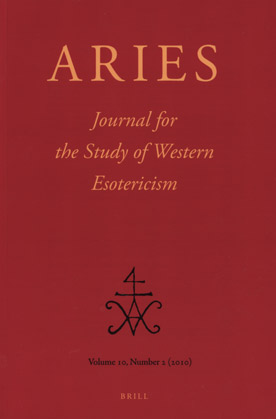 Together with Markus Altena Davidsen (Leiden University), I am setting up a special issue of Aries on “Esotericism and the Cognitive Science or Religion”. At this stage we are looking for abstracts from people who might be interested in contributing a full research article. Please find details in the CfP, linked here and pasted below. Feel free to spread the word to anyone who might be interested in this project.
Together with Markus Altena Davidsen (Leiden University), I am setting up a special issue of Aries on “Esotericism and the Cognitive Science or Religion”. At this stage we are looking for abstracts from people who might be interested in contributing a full research article. Please find details in the CfP, linked here and pasted below. Feel free to spread the word to anyone who might be interested in this project.
Call for Abstracts, Aries special issue on Esotericism and the Cognitive Science of Religion
(Edited by Egil Asprem and Markus Altena Davidsen)
The cognitive science of religion (CSR) and the academic study of Western esotericism have both made a significant impact on religious studies over the past two decades. The study of esotericism continues to deepen our understanding of the historical complexities of religion in the West, and has identified a number of blind-spots related to heterodox religion, radically experiential practices, and overlaps between “religion”, “magic”, and “science”. Meanwhile, CSR is rapidly changing the way scholars think about and approach key processes of religious practice, adding important new experimental and analytic tools to the scholar’s toolbox. This special issue of Aries aims to explore the potential of bringing these two fruitful fields together. What happens when we apply CSR approaches to the empirical material studied by esotericism scholars? How can key areas of interest in the study of esotericism, such as the notion of (experiential) gnosis, correspondences, imagination, higher knowledge, rejected knowledge, magical thinking, secrecy, and initiation contribute to the development of new approaches in CSR? How can we think about ritual practices such as theurgy, divination, healing, and ceremonial magic in terms of CSR approaches to ritual? Moreover, how can we use CSR approaches to these issues to integrate the study of esotericism more firmly in the broader comparative study of religion?
We are looking to curate research articles that deal with these and related questions. We take an inclusive view of CSR, and are happy to consider approaches from e.g. personality- and social psychology. We are especially interested in hands-on approaches that demonstrate the use of CSR inspired methodology to esoteric subject matters. We look in particular for articles based on contemporary ethnographies, interview or experimental data, but are also open for articles that bring CSR to bear on historical sources. The important thing is that studies should be able to integrate cognitive and psychological perspectives with existing state-of-the-art scholarship on esotericism.
If you want to take part in this special issue, please send us an abstract of your proposed topic by June 15 2015. Please specify as far as possible the empirical scope of your proposed article, as well as the CSR approaches you plan to work with. Include a short bibliography of the key literature you intend to draw on. On the basis of received abstracts, we will invite authors to submit their completed articles for peer review. The deadline for receiving finished manuscripts will be February 1 2016.
Relevant subject matter includes but is not limited to:
- New Age movement
- Ritual magic
- Channeling
- Healing/holistic health
- Correspondence thinking
- Kabbalah / esoteric hermeneutics
- Sex magic
- Spiritualism
- Neoshamanism
- Contemporary paganism
- Astrology
- Alchemy
- Western initiatory societies
Relevant CSR approaches include but are not limited to:
- Epidemiological approaches to the spread of esoteric representations
- Cognitive optimality theory (e.g., agency detection, promiscuous teleology, minimal counterintuitiveness, theological correctness)
- Cognitive ritual theory (e.g., ritual form hypothesis, two modes theory, cognitive resource depletion theory)
- Embodied cognition
- Neurocognitive, experimental, and psychological approaches to experiential practices
- Personality and individual difference correlates for esoteric practitioners (e.g. positive schizotypy, absorption, hypnotizability)
- Conceptual blending theory
Please email your proposed abstract to Egil Asprem ([email protected]) and Markus Altena Davidsen ([email protected]). If you have any questions, don’t hesitate to contact us.
]]>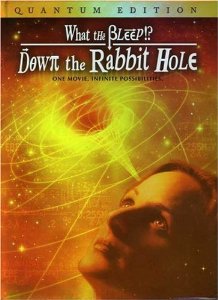
What the bleep do we know about how new age literature cherry-picks its science?
Science is prestige. Many new religious groups know this very well, and desire to have their spiritual claims vindication by Science. This is especially the case for esoteric new religions, which often owe their theological foundations to Theosophy and other 19th century occultist discourses that placed much emphasis on the need for a unification of science with “perennial wisdom”.
Viewing the use of science in modern esotericism and new religious movements in the context of attempts to gain legitimacy and cultural capital has obvious merits. There is now quite a bit of scholarship out there demonstrating the usefulness of such an approach (see my review in Asprem, 2015a). But it also leaves some important questions unanswered. Science is vastly productive: with the massive production of scientific studies each year, why is it that occultists, new agers, or alternative spiritual-but-not-religious types choose the particular scientific themes that they do, rather than other ones? It may simply seem “obvious” that a new age science book is more likely to deal with quantum entanglement than the recent advances in inferential statistics. But why is that really so? It may also seem obvious that the new age account of quantum entanglement should differ in crucial ways from the account most physicists would give. But in what way do they tend to differ, and why?
These sorts of questions have not really been addressed before – hence, most of what we know about the use of science in contemporary religious settings either concerns the discursive functions of science, its place in the metaphysical system in question, or (to some extent) the historical background. Put differently, we know that new agers cherry-pick their science, even what they pick, but not really how they do it or why they do it that way and not some other way.
In an article that was recently accepted for publication in Method & Theory in the Study of Religion, I argue that the cognitive science of religion (CSR) has some very useful tools that allow us to take a fresh look at the spread of scientific references in religious contexts. One of the core pillars of CSR has been to advance explanatory models of how certain kinds of representations get formulated, shaped, spread, and transformed – that is, what Dan Sperber (1996) has called an “epidemiology of representations”. For the most part, such studies have focused on (prototypically) “religious” representations like “gods” and “supernatural agents”, trying to explain the remarkable similarities of core features of such representations across cultures. However, an epidemiological approach can also be very helpful for understanding how “scientific” representations spread as well. And not only in religious or esoteric contexts, but throughout the broader culture.
If this sounds interesting, you are invited to have a look at the postprint of the article itself. To give the gist of it, however, let me show you the key figure and explain the basic point.
The basic argument is that we need to conceive of popular science (the magazines, books, TV-shows, websites, etc. dedicated to spreading scientific representations to a broad population) as a driving force in the processes by which scientific representations enter the minds of non-scientists. In other words, the first question to ask is how popular science selects, shapes, and disseminates science. One important part of how it does this is, I argue, by a process of cognitive optimization. It presents scientific representations in ways that make them particularly attention-grabbing and memorable, and it prefers representations from the scientific literature that already have some of these features.
In other words, we can hypothesize some interesting connections with what CSR is already discovering for religious representations. Popular science creates minimally counterintuitive (MCI) science-based representations, that share many similarities with concepts that are typical of what scholars call “religions”: concepts that break with intuitions about time and space, agency, mechanical and biological systems, relationship of mind to body, and so forth. Importantly, when so many scientific representations are massively counterintuitive, the mediating role of popular science tends to minimize this to a level that creates very salient representations, often in the shape of a metaphor, an analogy, or a thought experiment (I use “Schrödinger’s cat” as a an illustration). These kinds of representations, then, are likely to be picked up, and leave the reader bemused and curious. If that reader also possesses a store of esoteric background knowledge, they are likely to find ways to reconnect such representations to that broader framework. Doing so may eventually cause the representation to become more counter-intuitive, as it gets hooked up to other metaphysical constructs that may be anything but intuitive.
These representations may certainly fill rhetorical functions and be deployed to convince various audiences. But the reason why a certain representation gets chosen has a lot to do with how easily it can be used in “online” thinking. That is, it must be good to think with.
This framework has a number of implications that allow us to hypothesize about the relations between scientific professional literature, popular science, and science-based representations in religious and esoteric literature. It may even add something to the debate surrounding impact factors and likelihood of a study being referenced (do high-impact journals publish more MCI-clad science?). I discuss some of these at the end of the article. To test them in any rigorous fashion, however, will require much more preliminary work on how to code and quantify science-based representations. That is work I am not doing here, but hopefully the article can at least contribute to putting an interesting set of problems on the table.
Abstract:
Research on cultural transfers between science and religion has not paid enough attention to popular science. This article develops models that grasp the complexities of the epidemiology of science-based representations in non-scientific contexts by combining tools from the cognitive science of religion, the history, sociology, and philosophy of science, and the study of new religious movements. The popularization of science is conceptualized as a process of cognitive optimization, which starts with the communication efforts of scientists in science-internal forums and accelerates in popular science. The popularization process narrows the range of scientific representations that reach the public domain in structured ways: it attracts minimally counterintuitive representations, minimizes the massively counterintuitive, and re-represents (or translates) hard-to-process concepts in inferentially rich metaphors. This filtered sample trigger new processes of meaning-making as they are picked up and re-embedded in new cultural contexts.
Reference:
Asprem, E. (In press). “How Schrödinger’s Cat Became a Zombie: On the Epidemiology of Science-Based Representations in Popular and Religious Contexts.” Method & Theory in the Study of Religion.
]]>
At the upcoming conference of the American Academy of Religion (Atlanta, Georgia, November 21-24), affiliated organizations have the option of organizing a session of their own, apart from the regular sessions. Since the ESSWE is one of those affiliated organizations, we would like to use the opportunity and organize a session focused on “Western Esotericism and Cognition”. The idea is to explore how modern developments in cognitive studies could be made relevant to the study of Western esotericism, for instance in view of the role of alterations of consciousness as facilitators of “gnosis”, practices of imaginations/visualization, meditation, and so on. Specifically we hope to bridge the gap between psychological, neurological and related perspectives on the one hand, and source-based historical research, on the other (although next to historical approaches, anthropological research of contemporary forms of esotericism will definitely be very welcome too).
Hereby I invite anybody who is interested in participating in this session to send me a proposal. It should consist of (1) a title, (2) a very short abstract, i.e. no more than 2-3 lines, (3) a short biographical statement mentioning your academic background, affiliation etc. Email address: w . j . hanegraaff [at] uva . nl
The deadlines very tight, so in case you are interested, I will need your proposal at extremely short notice: *no later than next friday, February 13*. Please understand that due to heavy time constraints I will not be able to get into any long email discussions back and forth about possible papers topics etcetera. If you are interested, please just send me the title/abstract/bio, in a Word file.
To prevent any misunderstandings or disappointments: in case you are selected, you will of course be responsible for your own travel expenses, lodging, AAR registration fees etcetera.
Looking forward to your response, with best wishes,
Wouter Hanegraaff
This panel would be a great opportunity to do something about the lack of systematic attempts to incorporate CSR approaches in the study of esotericism, which I pointed to in the previous post.
]]>
